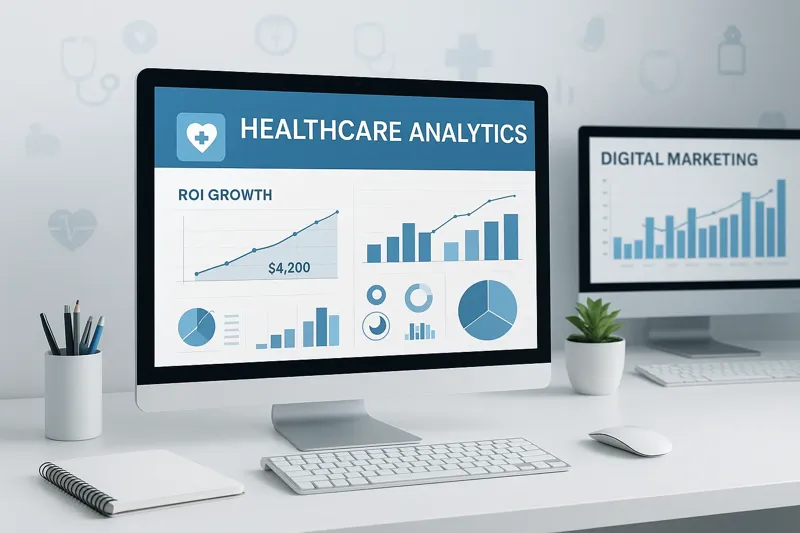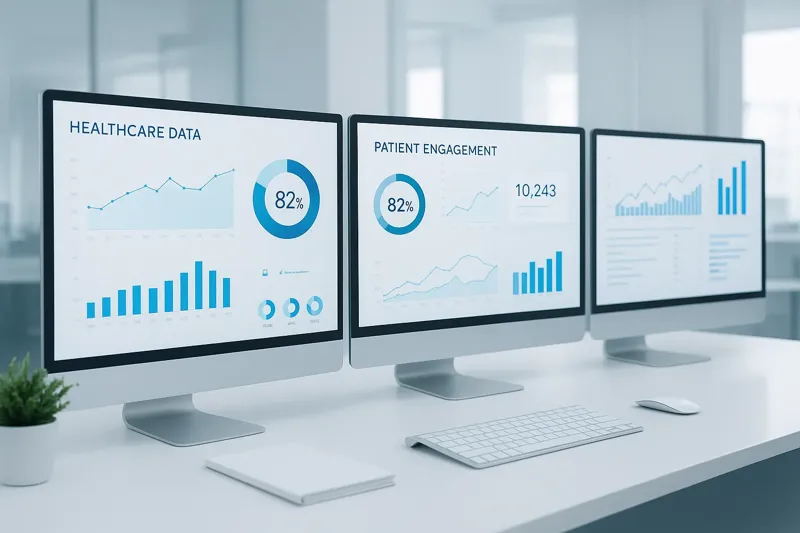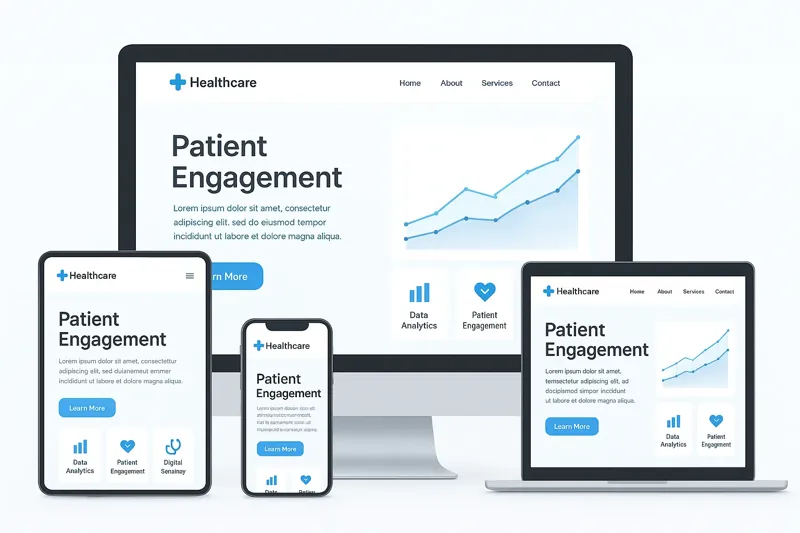The Importance of Online Reputation in Healthcare
Online reputation in healthcare is a critical factor influencing patient decisions and trust. With over 90% of patients relying on online reviews to select providers, healthcare organizations must proactively manage their digital presence to build credibility, improve patient satisfaction, and sustain competitive advantage. This article explores comprehensive strategies and best practices for managing online reputation effectively in the healthcare industry.
Understanding the Impact of Online Reputation on Patient Choice

How does online reputation influence patient choice in healthcare?
Online reputation plays a crucial role in how patients select healthcare providers. Research shows that more than 90% of patients consult online reviews before making their decision. Sites like Google, WebMD, and Healthgrades serve as trusted sources where patients gather insights about providers’ quality of care, professionalism, and patient experiences (Mastering Healthcare Reputation Management).
Influence of online reviews on patient decisions
Patients heavily rely on online reviews to assess healthcare services. Positive reviews foster trust and credibility, encouraging patients to choose a particular provider. Conversely, negative feedback can discourage patients, leading up to 43% willing to go out of network for providers with better reputations (Improve Healthcare Reputation Management).
Trust and credibility as foundations of reputation
Trust and credibility are foundational to a healthcare provider’s reputation. Patients expect transparency and responsiveness, checking how providers engage with reviews and address concerns online. Active reputation management, including prompt and empathetic responses, enhances patient confidence (Reputation Management Solution).
Patient reliance on multiple review platforms
Patients consult several platforms to make informed decisions. Google dominates with 74% of users, followed by WebMD (55%) and Healthgrades (31%). Ensuring consistent, positive feedback across these platforms is vital for healthcare providers (Review and Reputation Management for Healthcare).
Patient expectations of provider transparency and responsiveness
Alongside reviews, patients expect providers to communicate openly and respond professionally to feedback. This interaction reassures new patients of the provider’s commitment to quality and patient satisfaction, reinforcing trust (Improving Healthcare Reputation Management).
An exceptional online reputation is not just about positive ratings but about building a trustworthy and transparent patient-provider relationship that ultimately influences patient choices and outcomes (Healthcare Reputation Management Guide).
Key Components of Effective Healthcare Online Reputation Management
What are the essential components of managing online reputation in healthcare?
Effective online reputation management in healthcare includes several crucial components that collectively enhance patient trust and organizational credibility.
Review Monitoring and Response: Healthcare providers must actively monitor patient reviews on major platforms like Google, Healthgrades, and WebMD. Prompt, professional responses to both positive and negative reviews demonstrate transparency, accountability, and patient care commitment. Responding empathetically to negative feedback and offering offline resolutions can mitigate reputational harm (Managing your online reputation in health care).
Use of Reputation Management Software and Tools: Utilizing specialized reputation management software platforms consolidates reviews and feedback from various sources into a single dashboard. These tools facilitate automated review requests, sentiment analysis, timely alerts for negative reviews, and effective team collaboration, ensuring consistent and efficient reputation management.
Encouraging Patient Feedback and Authentic Reviews: Proactively soliciting feedback through automated follow-ups, QR codes, and surveys—such as Net Promoter Score (NPS)—helps gather authentic patient insights. Encouraging satisfied patients to share detailed, recent reviews increases review volume and credibility, further influencing prospective patients positively (Best healthcare ORM strategies).
Maintaining Accurate Online Listings and Profiles: Keeping business information up-to-date and consistent across all digital platforms, including Google My Business, Healthgrades, and social media profiles, improves search engine rankings and patient trust. Creating detailed practitioner profiles with managed reviews also strengthens perceived staff trustworthiness (Local listing management in healthcare).
Implementing these components ensures healthcare organizations maintain a robust online reputation that supports patient acquisition, retention, and overall excellence in care delivery (Reputation Management in Healthcare.
Strategies to Encourage and Manage Patient Reviews

How can healthcare providers effectively encourage and manage patient reviews?
Healthcare providers can significantly boost the quantity and quality of patient reviews by implementing automated review request systems that streamline generating patient reviews. These systems send SMS or email follow-ups soon after patient visits, making it easier for patients to share their experiences. Additionally, placing QR codes in clinics offers a seamless way for patients to access review platforms instantly and improve patient review habits.
Automated review requests and QR codes
Automated tools streamline the process of collecting feedback by prompting patients at optimal times, utilizing review request automation. QR codes placed in waiting or examination rooms serve as convenient touchpoints, increasing review submission rates without requiring extra effort from patients, helping with monitoring online platforms.
Responding to reviews professionally
Engaging with patient feedback by responding promptly and thoughtfully is essential for managing online healthcare reviews. Addressing positive reviews with gratitude encourages continued support, while professionally managing negative feedback by acknowledging concerns and offering to resolve issues offline demonstrates commitment to delivering high-quality care and fosters trust, aligned with best healthcare ORM strategies.
Balancing positive and negative feedback management
Effectively balancing responses to both positive and negative reviews helps maintain a credible and transparent online presence. This approach shows patients that their opinions are valued and that the healthcare provider actively strives to improve the patient experience. Proper response contributes to building trust and credibility and supports sustaining online reputation in healthcare.
By combining automated technologies for review solicitation with dedicated staff engagement in managing feedback, healthcare organizations can enhance their online reputation and deepen patient relationships.
Leveraging Reputation Management Software for Healthcare
What role does reputation management software play in healthcare?
Reputation management software serves as a centralized hub that consolidates patient reviews and feedback from multiple online platforms into a single, easy-to-use dashboard. This centralization simplifies monitoring efforts, allowing healthcare providers to respond promptly and consistently to both positive and negative patient reviews.
Centralized dashboards for review monitoring
These dashboards aggregate data from sources like Google, Healthgrades, and social media, providing a comprehensive view of a healthcare organization's online reputation. This enables efficient oversight and targeted engagement without the need to manually track multiple platforms.
Real-time alerts and sentiment analysis
Advanced reputation management tools generate real-time alerts for new reviews, particularly those that are negative, facilitating immediate service recovery and demonstrating responsiveness. Sentiment analysis employs natural language processing to interpret the emotional tone of patient feedback, highlighting areas of strength and pinpointing issues needing operational improvements.
Integration with electronic medical records (EMR)
Integration with EMR systems allows healthcare providers to link patient feedback directly to clinical data, enabling a richer understanding of patient experiences combined with medical outcomes. This holistic approach supports more informed decision-making and enhances quality of care.
Ensuring HIPAA compliance in response management
Handling patient reviews in healthcare requires strict adherence to HIPAA privacy regulations. Reputation management platforms incorporate features that maintain confidentiality by guiding compliant communication practices and preventing disclosure of protected health information during public review responses.
By leveraging these sophisticated software capabilities, healthcare organizations can build and maintain trustworthy, credible online reputations that attract and retain patients while supporting ongoing quality improvement.
Creating and Maintaining a Strong Digital Presence
How can healthcare organizations build a strong online presence?
Healthcare organizations build a strong online presence by claiming healthcare review profiles on major review platforms such as Google, Healthgrades, and WebMD. Ensuring consistent and accurate business information like name, address, and phone number across all listings improves credibility and search engine rankings.
Developing patient-centric websites with clear, informative content is essential. Creating location-specific pages helps patients find relevant services quickly and enhances local SEO. These pages should include provider bios, practice hours, and contact details to build trust.
Implementing SEO strategies tailored for healthcare—such as optimizing keywords, meta descriptions, and mobile-friendly design—boosts visibility in search engine results. Regularly updating a blog with educational content on health topics addresses patient concerns and establishes the organization as a reliable knowledge source.
Active engagement on social media platforms furthers trust and reputation. Sharing patient testimonials, health tips, interactive posts, and behind-the-scenes insights humanizes healthcare providers. Promptly responding to comments and questions fosters community and patient loyalty.
Together, these digital presence strategies support reputation growth and help healthcare organizations stand out in a competitive market.
Enhancing Patient Experience to Sustain Positive Reputation
Why is patient experience vital for online reputation in healthcare?
Patient experience directly shapes online reputation through patient reviews influence, which are a major factor in healthcare provider choice. Exceptional patient care that includes clear communication and genuine empathy contributes to more positive feedback and higher patient satisfaction.
Improving communication and empathy during care
Effective communication and demonstrating empathy help patients feel valued and respected. This builds trust and encourages patients to share positive experiences online, reinforcing the healthcare organization’s credibility with building trust in healthcare.
Reducing wait times and enhancing service quality
Shorter wait times and efficient services improve patient satisfaction. Streamlined processes and investing in operational improvements ensure patients receive timely and high-quality care, which translates to favorable online reviews, boosting patient experience in hospital reputation.
Staff training and patient interaction best practices
Training staff in active listening, conflict resolution, and proactive communication enhances patient interaction quality. Well-prepared staff contribute to consistent, positive patient experiences vital for sustaining a strong reputation as part of staff training for quality of care.
Community engagement and its impact on reputation
Healthcare organizations that engage with their communities through outreach and educational initiatives demonstrate care beyond clinical settings. This participation strengthens public trust, motivates positive testimonials, and helps maintain a resilient and reputable presence online, emphasizing community engagement in healthcare.
By prioritizing patient-centered care and fostering strong community ties, healthcare providers can actively sustain and improve their online reputation in healthcare.
Responding to Negative Reviews: Best Practices and Challenges

How should healthcare providers handle negative online reviews?
Healthcare providers should respond to negative healthcare reviews with professionalism and empathy. Prompt, empathetic responses acknowledge patient concerns and demonstrate genuine care, which can help rebuild trust and show accountability.
Respect for patient privacy is crucial. Providers must avoid disclosing any protected health information (PHI) in their responses to stay compliant with HIPAA compliance in online review responses. When sensitive issues arise, it is best to take the conversation offline by providing contact information or inviting the patient to discuss their concerns privately.
Negative feedback offers valuable insights. Providers should use it constructively to identify patterns or systemic problems within their services. This approach enables healthcare organizations to make targeted operational improvements that enhance patient experience and overall reputation.
Avoiding common pitfalls in online responses
Common pitfalls include defensive or dismissive replies, revealing confidential information, or ignoring reviews altogether. Such actions can damage trust and escalate negative perceptions. A measured and thoughtful response approach, combined with continuous monitoring healthcare reviews and engagement, helps avoid these risks.
By handling negative reviews effectively, healthcare providers turn challenges into opportunities, reinforcing their commitment to delivering high-quality care and improving patient satisfaction.
Measuring and Analyzing Reputation Metrics for Continuous Improvement
What metrics are important for evaluating healthcare reputation management effectiveness?
Healthcare reputation management effectiveness hinges on various important metrics that provide a comprehensive overview of an organization's standing and areas for improvement.
Tracking the volume and quality of patient reviews is fundamental. This includes the total number of reviews, their star ratings, and the presence of detailed, recent comments that influence patient trust.
Sentiment analysis plays a vital role in understanding the emotional tone behind patient feedback, helping identify patterns and common concerns.
Healthcare organizations must also monitor website traffic and social media engagement to gauge patient interest, informational reach, and reputation visibility. Metrics such as page visits, time spent on provider profiles, shares, comments, and likes all contribute valuable information.
Utilizing Net Promoter Score (NPS) surveys and other patient feedback tools offers measurable insights into patient loyalty, satisfaction, and the likelihood of recommending services.
Benchmarking against competitors is essential to understand relative performance. Comparing review volume, average ratings, and sentiment trends across similar providers helps healthcare organizations target strategic improvements and remain competitive, as discussed in healthcare reputation comparison and benchmarking.
Regularly analyzing these metrics allows for continuous reputation enhancement by responding to patient needs and tailoring communication and care accordingly.
Legal and Ethical Considerations in Healthcare Online Reputation Management

What legal and ethical considerations must healthcare organizations observe in reputation management?
Healthcare organizations must comply with strict legal and ethical standards when managing their online reputation. A crucial aspect is HIPAA compliance, which mandates that no patient-identifiable information be disclosed in public responses to online reviews or feedback. Organizations should respond to both positive and negative reviews professionally without revealing private patient details, ensuring confidentiality is preserved.
Ethical communication requires transparency, honesty, and respect for patient privacy. This involves clear, empathetic, and non-defensive interactions that build trust and credibility with patients and the broader community, as detailed in best healthcare ORM strategies.
Moreover, healthcare providers need to establish disaster and crisis management plans to address any negative media or social media incidents promptly. Such strategies protect the organization's public image by offering timely and appropriate responses to crises, including acknowledging issues, communicating corrective actions, and, when needed, involving reputation management professionals.
Adhering to these legal and ethical practices not only safeguards patient privacy but also strengthens patient confidence, ultimately supporting sustainable and positive healthcare reputation.
Future Trends and Innovations in Healthcare Reputation Management

What future trends are shaping healthcare online reputation management?
Healthcare reputation management is rapidly evolving with technology-driven innovations that enhance how providers monitor healthcare reputation and respond to patient feedback. Artificial intelligence (AI) and natural language processing (NLP) now play critical roles in sentiment analysis, allowing healthcare organizations to quickly understand patient emotions and identify key areas for service improvement.
Automated review requests combined with real-time response alerts enable healthcare teams to engage promptly with patient reviews, especially negative feedback, promoting trust and service recovery. These tools reduce manual processes and help maintain consistent, HIPAA-compliant communication.
Social media continues to be a pivotal platform for building patient relationships and fostering community engagement in healthcare. Healthcare providers use it not only to share educational content and success stories but also to humanize their brand and swiftly address patient concerns.
Integration of marketing and reputation management strategies is increasingly important. Combining digital marketing efforts with reputation oversight helps providers maintain a strong online presence, ensuring alignment between patient experience, brand messaging, and competitive positioning.
Together, these trends empower healthcare organizations to be proactive and strategic in shaping their online reputation, ultimately enhancing patient trust, loyalty, and practice growth.
Sustaining Trust Through Proactive Online Reputation Management
Online reputation management in healthcare is an ongoing, strategic process essential for fostering patient trust, improving satisfaction, and ensuring operational success. By leveraging technology, encouraging authentic patient feedback, maintaining legal and ethical standards, and focusing on exceptional patient experience, healthcare organizations can build resilient reputations. As patient reliance on digital information intensifies, adopting comprehensive reputation management strategies will continue to be a decisive factor in healthcare growth and patient loyalty.
The Importance of Online Reputation in Healthcare
Online reputation in healthcare is a critical factor influencing patient decisions and trust. With over 90% of patients relying on online reviews to select providers, healthcare organizations must proactively manage their digital presence to build credibility, improve patient satisfaction, and sustain competitive advantage. This article explores comprehensive strategies and best practices for managing online reputation effectively in the healthcare industry.
Understanding the Impact of Online Reputation on Patient Choice

How does online reputation influence patient choice in healthcare?
Online reputation plays a crucial role in how patients select healthcare providers. Research shows that more than 90% of patients consult online reviews before making their decision. Sites like Google, WebMD, and Healthgrades serve as trusted sources where patients gather insights about providers’ quality of care, professionalism, and patient experiences (Mastering Healthcare Reputation Management).
Influence of online reviews on patient decisions
Patients heavily rely on online reviews to assess healthcare services. Positive reviews foster trust and credibility, encouraging patients to choose a particular provider. Conversely, negative feedback can discourage patients, leading up to 43% willing to go out of network for providers with better reputations (Improve Healthcare Reputation Management).
Trust and credibility as foundations of reputation
Trust and credibility are foundational to a healthcare provider’s reputation. Patients expect transparency and responsiveness, checking how providers engage with reviews and address concerns online. Active reputation management, including prompt and empathetic responses, enhances patient confidence (Reputation Management Solution).
Patient reliance on multiple review platforms
Patients consult several platforms to make informed decisions. Google dominates with 74% of users, followed by WebMD (55%) and Healthgrades (31%). Ensuring consistent, positive feedback across these platforms is vital for healthcare providers (Review and Reputation Management for Healthcare).
Patient expectations of provider transparency and responsiveness
Alongside reviews, patients expect providers to communicate openly and respond professionally to feedback. This interaction reassures new patients of the provider’s commitment to quality and patient satisfaction, reinforcing trust (Improving Healthcare Reputation Management).
An exceptional online reputation is not just about positive ratings but about building a trustworthy and transparent patient-provider relationship that ultimately influences patient choices and outcomes (Healthcare Reputation Management Guide).
Key Components of Effective Healthcare Online Reputation Management
What are the essential components of managing online reputation in healthcare?
Effective online reputation management in healthcare includes several crucial components that collectively enhance patient trust and organizational credibility.
Review Monitoring and Response: Healthcare providers must actively monitor patient reviews on major platforms like Google, Healthgrades, and WebMD. Prompt, professional responses to both positive and negative reviews demonstrate transparency, accountability, and patient care commitment. Responding empathetically to negative feedback and offering offline resolutions can mitigate reputational harm (Managing your online reputation in health care).
Use of Reputation Management Software and Tools: Utilizing specialized reputation management software platforms consolidates reviews and feedback from various sources into a single dashboard. These tools facilitate automated review requests, sentiment analysis, timely alerts for negative reviews, and effective team collaboration, ensuring consistent and efficient reputation management.
Encouraging Patient Feedback and Authentic Reviews: Proactively soliciting feedback through automated follow-ups, QR codes, and surveys—such as Net Promoter Score (NPS)—helps gather authentic patient insights. Encouraging satisfied patients to share detailed, recent reviews increases review volume and credibility, further influencing prospective patients positively (Best healthcare ORM strategies).
Maintaining Accurate Online Listings and Profiles: Keeping business information up-to-date and consistent across all digital platforms, including Google My Business, Healthgrades, and social media profiles, improves search engine rankings and patient trust. Creating detailed practitioner profiles with managed reviews also strengthens perceived staff trustworthiness (Local listing management in healthcare).
Implementing these components ensures healthcare organizations maintain a robust online reputation that supports patient acquisition, retention, and overall excellence in care delivery (Reputation Management in Healthcare.
Strategies to Encourage and Manage Patient Reviews

How can healthcare providers effectively encourage and manage patient reviews?
Healthcare providers can significantly boost the quantity and quality of patient reviews by implementing automated review request systems that streamline generating patient reviews. These systems send SMS or email follow-ups soon after patient visits, making it easier for patients to share their experiences. Additionally, placing QR codes in clinics offers a seamless way for patients to access review platforms instantly and improve patient review habits.
Automated review requests and QR codes
Automated tools streamline the process of collecting feedback by prompting patients at optimal times, utilizing review request automation. QR codes placed in waiting or examination rooms serve as convenient touchpoints, increasing review submission rates without requiring extra effort from patients, helping with monitoring online platforms.
Responding to reviews professionally
Engaging with patient feedback by responding promptly and thoughtfully is essential for managing online healthcare reviews. Addressing positive reviews with gratitude encourages continued support, while professionally managing negative feedback by acknowledging concerns and offering to resolve issues offline demonstrates commitment to delivering high-quality care and fosters trust, aligned with best healthcare ORM strategies.
Balancing positive and negative feedback management
Effectively balancing responses to both positive and negative reviews helps maintain a credible and transparent online presence. This approach shows patients that their opinions are valued and that the healthcare provider actively strives to improve the patient experience. Proper response contributes to building trust and credibility and supports sustaining online reputation in healthcare.
By combining automated technologies for review solicitation with dedicated staff engagement in managing feedback, healthcare organizations can enhance their online reputation and deepen patient relationships.
Leveraging Reputation Management Software for Healthcare
What role does reputation management software play in healthcare?
Reputation management software serves as a centralized hub that consolidates patient reviews and feedback from multiple online platforms into a single, easy-to-use dashboard. This centralization simplifies monitoring efforts, allowing healthcare providers to respond promptly and consistently to both positive and negative patient reviews.
Centralized dashboards for review monitoring
These dashboards aggregate data from sources like Google, Healthgrades, and social media, providing a comprehensive view of a healthcare organization's online reputation. This enables efficient oversight and targeted engagement without the need to manually track multiple platforms.
Real-time alerts and sentiment analysis
Advanced reputation management tools generate real-time alerts for new reviews, particularly those that are negative, facilitating immediate service recovery and demonstrating responsiveness. Sentiment analysis employs natural language processing to interpret the emotional tone of patient feedback, highlighting areas of strength and pinpointing issues needing operational improvements.
Integration with electronic medical records (EMR)
Integration with EMR systems allows healthcare providers to link patient feedback directly to clinical data, enabling a richer understanding of patient experiences combined with medical outcomes. This holistic approach supports more informed decision-making and enhances quality of care.
Ensuring HIPAA compliance in response management
Handling patient reviews in healthcare requires strict adherence to HIPAA privacy regulations. Reputation management platforms incorporate features that maintain confidentiality by guiding compliant communication practices and preventing disclosure of protected health information during public review responses.
By leveraging these sophisticated software capabilities, healthcare organizations can build and maintain trustworthy, credible online reputations that attract and retain patients while supporting ongoing quality improvement.
Creating and Maintaining a Strong Digital Presence
How can healthcare organizations build a strong online presence?
Healthcare organizations build a strong online presence by claiming healthcare review profiles on major review platforms such as Google, Healthgrades, and WebMD. Ensuring consistent and accurate business information like name, address, and phone number across all listings improves credibility and search engine rankings.
Developing patient-centric websites with clear, informative content is essential. Creating location-specific pages helps patients find relevant services quickly and enhances local SEO. These pages should include provider bios, practice hours, and contact details to build trust.
Implementing SEO strategies tailored for healthcare—such as optimizing keywords, meta descriptions, and mobile-friendly design—boosts visibility in search engine results. Regularly updating a blog with educational content on health topics addresses patient concerns and establishes the organization as a reliable knowledge source.
Active engagement on social media platforms furthers trust and reputation. Sharing patient testimonials, health tips, interactive posts, and behind-the-scenes insights humanizes healthcare providers. Promptly responding to comments and questions fosters community and patient loyalty.
Together, these digital presence strategies support reputation growth and help healthcare organizations stand out in a competitive market.
Enhancing Patient Experience to Sustain Positive Reputation
Why is patient experience vital for online reputation in healthcare?
Patient experience directly shapes online reputation through patient reviews influence, which are a major factor in healthcare provider choice. Exceptional patient care that includes clear communication and genuine empathy contributes to more positive feedback and higher patient satisfaction.
Improving communication and empathy during care
Effective communication and demonstrating empathy help patients feel valued and respected. This builds trust and encourages patients to share positive experiences online, reinforcing the healthcare organization’s credibility with building trust in healthcare.
Reducing wait times and enhancing service quality
Shorter wait times and efficient services improve patient satisfaction. Streamlined processes and investing in operational improvements ensure patients receive timely and high-quality care, which translates to favorable online reviews, boosting patient experience in hospital reputation.
Staff training and patient interaction best practices
Training staff in active listening, conflict resolution, and proactive communication enhances patient interaction quality. Well-prepared staff contribute to consistent, positive patient experiences vital for sustaining a strong reputation as part of staff training for quality of care.
Community engagement and its impact on reputation
Healthcare organizations that engage with their communities through outreach and educational initiatives demonstrate care beyond clinical settings. This participation strengthens public trust, motivates positive testimonials, and helps maintain a resilient and reputable presence online, emphasizing community engagement in healthcare.
By prioritizing patient-centered care and fostering strong community ties, healthcare providers can actively sustain and improve their online reputation in healthcare.
Responding to Negative Reviews: Best Practices and Challenges

How should healthcare providers handle negative online reviews?
Healthcare providers should respond to negative healthcare reviews with professionalism and empathy. Prompt, empathetic responses acknowledge patient concerns and demonstrate genuine care, which can help rebuild trust and show accountability.
Respect for patient privacy is crucial. Providers must avoid disclosing any protected health information (PHI) in their responses to stay compliant with HIPAA compliance in online review responses. When sensitive issues arise, it is best to take the conversation offline by providing contact information or inviting the patient to discuss their concerns privately.
Negative feedback offers valuable insights. Providers should use it constructively to identify patterns or systemic problems within their services. This approach enables healthcare organizations to make targeted operational improvements that enhance patient experience and overall reputation.
Avoiding common pitfalls in online responses
Common pitfalls include defensive or dismissive replies, revealing confidential information, or ignoring reviews altogether. Such actions can damage trust and escalate negative perceptions. A measured and thoughtful response approach, combined with continuous monitoring healthcare reviews and engagement, helps avoid these risks.
By handling negative reviews effectively, healthcare providers turn challenges into opportunities, reinforcing their commitment to delivering high-quality care and improving patient satisfaction.
Measuring and Analyzing Reputation Metrics for Continuous Improvement
What metrics are important for evaluating healthcare reputation management effectiveness?
Healthcare reputation management effectiveness hinges on various important metrics that provide a comprehensive overview of an organization's standing and areas for improvement.
Tracking the volume and quality of patient reviews is fundamental. This includes the total number of reviews, their star ratings, and the presence of detailed, recent comments that influence patient trust.
Sentiment analysis plays a vital role in understanding the emotional tone behind patient feedback, helping identify patterns and common concerns.
Healthcare organizations must also monitor website traffic and social media engagement to gauge patient interest, informational reach, and reputation visibility. Metrics such as page visits, time spent on provider profiles, shares, comments, and likes all contribute valuable information.
Utilizing Net Promoter Score (NPS) surveys and other patient feedback tools offers measurable insights into patient loyalty, satisfaction, and the likelihood of recommending services.
Benchmarking against competitors is essential to understand relative performance. Comparing review volume, average ratings, and sentiment trends across similar providers helps healthcare organizations target strategic improvements and remain competitive, as discussed in healthcare reputation comparison and benchmarking.
Regularly analyzing these metrics allows for continuous reputation enhancement by responding to patient needs and tailoring communication and care accordingly.
Legal and Ethical Considerations in Healthcare Online Reputation Management

What legal and ethical considerations must healthcare organizations observe in reputation management?
Healthcare organizations must comply with strict legal and ethical standards when managing their online reputation. A crucial aspect is HIPAA compliance, which mandates that no patient-identifiable information be disclosed in public responses to online reviews or feedback. Organizations should respond to both positive and negative reviews professionally without revealing private patient details, ensuring confidentiality is preserved.
Ethical communication requires transparency, honesty, and respect for patient privacy. This involves clear, empathetic, and non-defensive interactions that build trust and credibility with patients and the broader community, as detailed in best healthcare ORM strategies.
Moreover, healthcare providers need to establish disaster and crisis management plans to address any negative media or social media incidents promptly. Such strategies protect the organization's public image by offering timely and appropriate responses to crises, including acknowledging issues, communicating corrective actions, and, when needed, involving reputation management professionals.
Adhering to these legal and ethical practices not only safeguards patient privacy but also strengthens patient confidence, ultimately supporting sustainable and positive healthcare reputation.
Future Trends and Innovations in Healthcare Reputation Management

What future trends are shaping healthcare online reputation management?
Healthcare reputation management is rapidly evolving with technology-driven innovations that enhance how providers monitor healthcare reputation and respond to patient feedback. Artificial intelligence (AI) and natural language processing (NLP) now play critical roles in sentiment analysis, allowing healthcare organizations to quickly understand patient emotions and identify key areas for service improvement.
Automated review requests combined with real-time response alerts enable healthcare teams to engage promptly with patient reviews, especially negative feedback, promoting trust and service recovery. These tools reduce manual processes and help maintain consistent, HIPAA-compliant communication.
Social media continues to be a pivotal platform for building patient relationships and fostering community engagement in healthcare. Healthcare providers use it not only to share educational content and success stories but also to humanize their brand and swiftly address patient concerns.
Integration of marketing and reputation management strategies is increasingly important. Combining digital marketing efforts with reputation oversight helps providers maintain a strong online presence, ensuring alignment between patient experience, brand messaging, and competitive positioning.
Together, these trends empower healthcare organizations to be proactive and strategic in shaping their online reputation, ultimately enhancing patient trust, loyalty, and practice growth.
Sustaining Trust Through Proactive Online Reputation Management
Online reputation management in healthcare is an ongoing, strategic process essential for fostering patient trust, improving satisfaction, and ensuring operational success. By leveraging technology, encouraging authentic patient feedback, maintaining legal and ethical standards, and focusing on exceptional patient experience, healthcare organizations can build resilient reputations. As patient reliance on digital information intensifies, adopting comprehensive reputation management strategies will continue to be a decisive factor in healthcare growth and patient loyalty.






